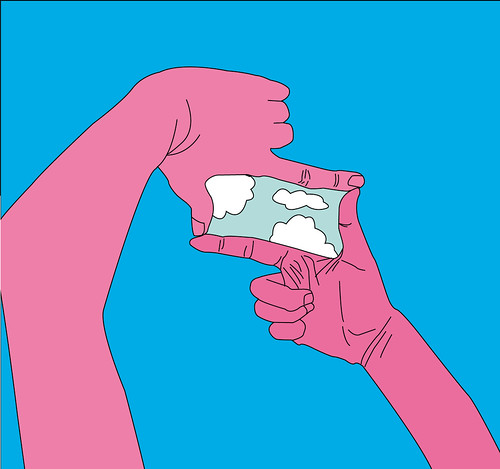 Earlier this year, I had a visitor from South Africa contact me to ask if they could drop into the school at which I work while they were visiting Australia. She was were here as part of a study tour, and had heard some good things about PLC Sydney. In fact, her school in Johannesburg was a similar sort of school – independent, all girls, similar size – and she was interested in comparing a few ideas. Her school was also using IWBs extensively, and was keen to see how our staff were using them.
Earlier this year, I had a visitor from South Africa contact me to ask if they could drop into the school at which I work while they were visiting Australia. She was were here as part of a study tour, and had heard some good things about PLC Sydney. In fact, her school in Johannesburg was a similar sort of school – independent, all girls, similar size – and she was interested in comparing a few ideas. Her school was also using IWBs extensively, and was keen to see how our staff were using them.
On the day she visited, we chatted for a while in the main staffroom, shared ideas about education and various resources for learning, before finally heading off on a little tour around the school.
Because I knew she was coming, I sent an email around asking for volunteers who wouldn’t mind us coming into their classrooms. Several responded positively, so I organised to expect us to drop by their classrooms, however I wasn’t specific about times since I didn’t really know when we would be coming by… I suggested that they don’t try and come up with anything special, just do whatever they would normally be doing at that time. I was pleased that I ended up with a cross section of year groups too, right from our very young students all the way up to some senior classes.
As we wandered about the school, we saw some wonderful teaching in action. My South African friend kept remarking on the quality of the teaching she was seeing, and how expertly these teachers appeared to get the best from their students. And she was right – there really were some wonderful things going on in these classrooms. There was great creativity, engagement, enthusiasm and learning taking place in every class we visited, and it was very obviously driven by the dedication, passion and commitment of these teachers.
Something that occurred to me later that day was that every one of these classrooms we visited were all of teachers who had not always been teachers. Every single one of them had done other things in their lives besides being a teacher. For example, the Year 2 teacher had originally trained as a teacher, but then spent several years as a professional opera singer with the Australian Opera. The Year 6 teacher used to be a corporate lawyer before deciding to retrain as a teacher. The maths teacher we visited in the high school was originally a computer programmer before he started his teaching career.
I thought about other great teachers I knew, and I could think of many examples of where this pattern seemed to consistently continue. The number of really good teachers I knew who had done other things outside of teaching was quite astounding. Whether they had originally done something else before discovering teaching, or whether they had started out as a teacher then left the profession to do something quite different before returning, the nexus between having out-of-school experience and being an outstanding teacher seemed incredibly obvious.
Before you jump on that last statement, I’m NOT saying that there is anything inherently wrong with teachers who have always been teachers. Not at all. There are many wonderful educators, many of whom have only ever been teachers, who do a fantastic job of teaching kids. But I’d still argue the case that to be a good teacher you need to have some level of broader interaction with the wider world, and whether that comes from involvement in something extra-curricula like being active in a club or organisation, having a part-time job, doing volunteer work, helping your spouse run their business, or even having your own small business “on the side”, there really needs to be some other way of gaining exposure to the world outside the classroom.
I can’t help thinking that teachers who have this wider experience beyond the classroom, who have had to deal with that dreaded “real world” we hear so much about, add an important extra dimension to what they bring to their classrooms and to the experiences they offer their students.
We can all recognise the value of work-experience programs for students, and most people would agree that it’s important that kids get to see what life is like outside of school. But I’d like to see some sort of “real world experience program” for educators. Perhaps teachers need to do a work experience program just as much as students do? Maybe we need an arrangement where teachers can choose to spend part of a term away from the classroom every few years, working in “the real world”? It would help them understand the world their students are preparing for, it would give them a far more rounded perspective on life beyond the classroom, and overall I really think it would make them better teachers in the long run.
What do you think? Have you noticed the same thing with teachers who have done other things outside teaching? Would some sort of a teacher work experience program help make us better at what we do?
Image: ‘Visionary‘
http://www.flickr.com/photos/70405662@N00/1204637477


